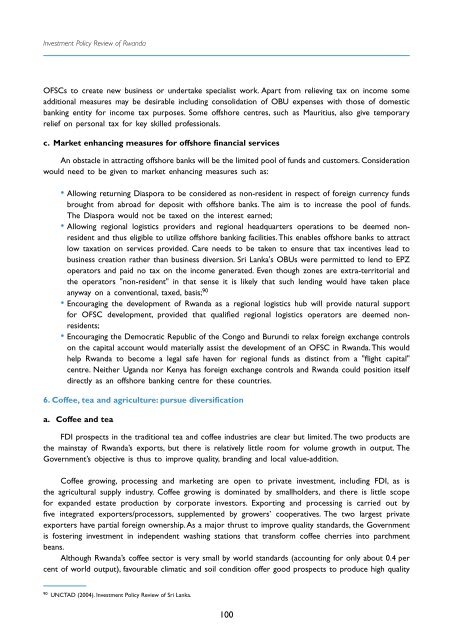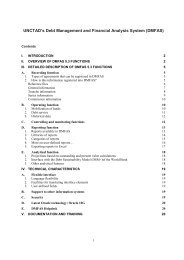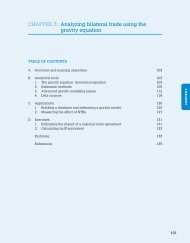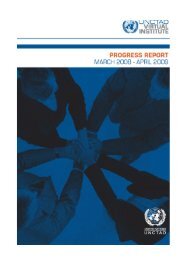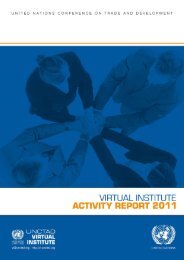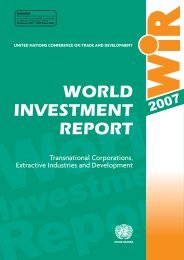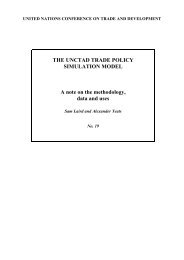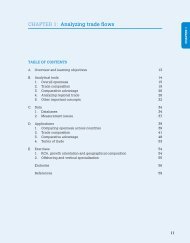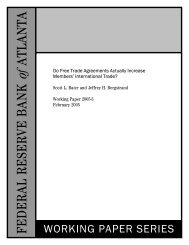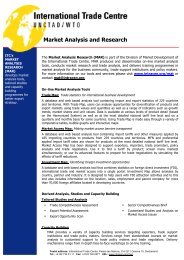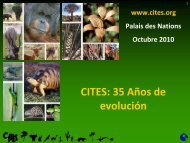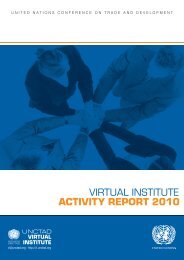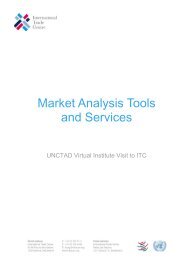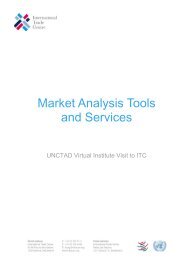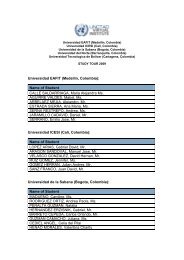Investment Policy Review - Rwanda - UNCTAD Virtual Institute
Investment Policy Review - Rwanda - UNCTAD Virtual Institute
Investment Policy Review - Rwanda - UNCTAD Virtual Institute
Create successful ePaper yourself
Turn your PDF publications into a flip-book with our unique Google optimized e-Paper software.
<strong>Investment</strong> <strong>Policy</strong> <strong>Review</strong> of <strong>Rwanda</strong><br />
OFSCs to create new business or undertake specialist work. Apart from relieving tax on income some<br />
additional measures may be desirable including consolidation of OBU expenses with those of domestic<br />
banking entity for income tax purposes. Some offshore centres, such as Mauritius, also give temporary<br />
relief on personal tax for key skilled professionals.<br />
c. Market enhancing measures for offshore financial services<br />
An obstacle in attracting offshore banks will be the limited pool of funds and customers. Consideration<br />
would need to be given to market enhancing measures such as:<br />
• Allowing returning Diaspora to be considered as non-resident in respect of foreign currency funds<br />
brought from abroad for deposit with offshore banks. The aim is to increase the pool of funds.<br />
The Diaspora would not be taxed on the interest earned;<br />
• Allowing regional logistics providers and regional headquarters operations to be deemed nonresident<br />
and thus eligible to utilize offshore banking facilities. This enables offshore banks to attract<br />
low taxation on services provided. Care needs to be taken to ensure that tax incentives lead to<br />
business creation rather than business diversion. Sri Lanka's OBUs were permitted to lend to EPZ<br />
operators and paid no tax on the income generated. Even though zones are extra-territorial and<br />
the operators "non-resident" in that sense it is likely that such lending would have taken place<br />
anyway on a conventional, taxed, basis; 90<br />
• Encouraging the development of <strong>Rwanda</strong> as a regional logistics hub will provide natural support<br />
for OFSC development, provided that qualified regional logistics operators are deemed nonresidents;<br />
• Encouraging the Democratic Republic of the Congo and Burundi to relax foreign exchange controls<br />
on the capital account would materially assist the development of an OFSC in <strong>Rwanda</strong>. This would<br />
help <strong>Rwanda</strong> to become a legal safe haven for regional funds as distinct from a "flight capital"<br />
centre. Neither Uganda nor Kenya has foreign exchange controls and <strong>Rwanda</strong> could position itself<br />
directly as an offshore banking centre for these countries.<br />
6. Coffee, tea and agriculture: pursue diversification<br />
a. Coffee and tea<br />
FDI prospects in the traditional tea and coffee industries are clear but limited. The two products are<br />
the mainstay of <strong>Rwanda</strong>’s exports, but there is relatively little room for volume growth in output. The<br />
Government’s objective is thus to improve quality, branding and local value-addition.<br />
Coffee growing, processing and marketing are open to private investment, including FDI, as is<br />
the agricultural supply industry. Coffee growing is dominated by smallholders, and there is little scope<br />
for expanded estate production by corporate investors. Exporting and processing is carried out by<br />
five integrated exporters/processors, supplemented by growers’ cooperatives. The two largest private<br />
exporters have partial foreign ownership. As a major thrust to improve quality standards, the Government<br />
is fostering investment in independent washing stations that transform coffee cherries into parchment<br />
beans.<br />
Although <strong>Rwanda</strong>’s coffee sector is very small by world standards (accounting for only about 0.4 per<br />
cent of world output), favourable climatic and soil condition offer good prospects to produce high quality<br />
90<br />
<strong>UNCTAD</strong> (2004). <strong>Investment</strong> <strong>Policy</strong> <strong>Review</strong> of Sri Lanka.<br />
100


